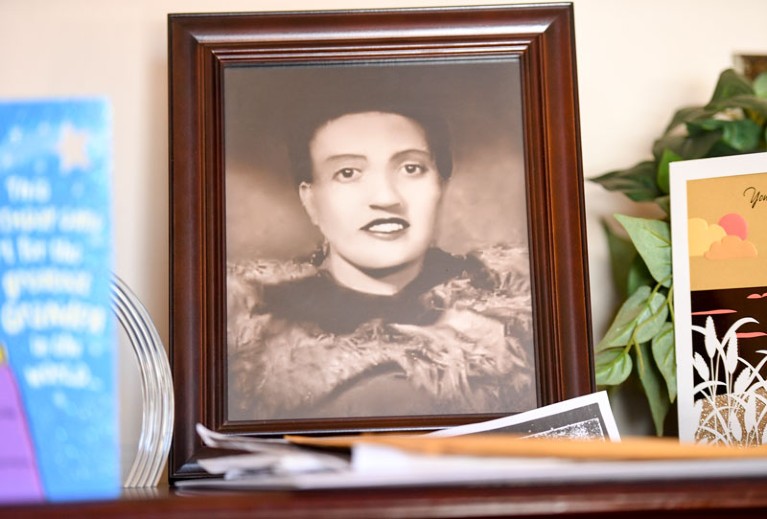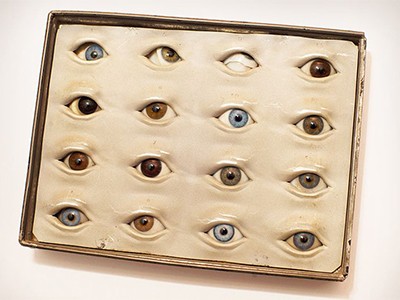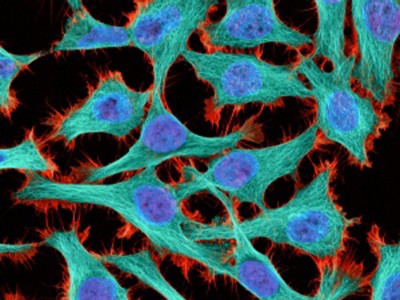
Nobody asked Henrietta Lacks for consent to use her cells in research in 1951 — and, shockingly, consent is still not always required in the United States today.Credit: Jonathan Newton/The Washington Post/Getty
That day in Erika Johnson’s high-school biology class, some 20 years ago, is seared into her memory. The teacher was leading the students through experiments involving cells from a widely used line known as HeLa. The cell line originated from tissue taken from a woman named Henrietta Lacks — and Johnson’s mother was a Lacks. “This is my great-grandmother I’m holding in my hand,” Johnson remembers feeling. “It was a very surreal situation.”
Last month marked 100 years since Lacks’s birth. She died in 1951, aged 31, of an aggressive cervical cancer. Months earlier, doctors at the Johns Hopkins Hospital in Baltimore, Maryland, had taken samples of her cancerous cells while diagnosing and treating the disease. They gave some of that tissue to a researcher without Lacks’s knowledge or consent. In the laboratory, her cells turned out to have an extraordinary capacity to survive and reproduce; they were, in essence, immortal. The researcher shared them widely with other scientists, and they became a workhorse of biological research. Today, work done with HeLa cells underpins much of modern medicine; they have been involved in key discoveries in many fields, including cancer, immunology and infectious disease. One of their most recent applications has been in research for vaccines against COVID-19.
But the story of Henrietta Lacks also illustrates the racial inequities that are embedded in the US research and health-care systems. Lacks was a Black woman. The hospital where her cells were collected was one of only a few that provided medical care to Black people. None of the biotechnology or other companies that profited from her cells passed any money back to her family. And, for decades after her death, doctors and scientists repeatedly failed to ask her family for consent as they revealed Lacks’s name publicly, gave her medical records to the media, and even published her cells’ genome online. (Following an outcry, the genome was soon removed.) Nature later published the genome of another HeLa line1 after the Lacks family reached an agreement with the US National Institutes of Health (NIH) to approve its release.
Racism in science: the taint that lingers
Now, the extraordinary events of 2020 — the #BlackLivesMatter movement for racial justice, and the unequal toll of COVID-19 on communities of colour — are compelling scientists to reckon with past injustices. Some have called for a reduction in the use of HeLa cells in research, or even an end to their use entirely. The argument is that, because the cells were obtained without Lacks’s knowledge or consent (even though this was legal at the time), any use of them is unethical and perpetuates an injustice.
But that is not what many Lacks family members want. Henrietta Lacks has dozens of descendants, several of whom are leading a new effort in her centennial year, #HELA100, that instead calls for people to celebrate her life and legacy. “I want scientists to acknowledge that HeLa cells came from an African American woman who was flesh and blood, who had a family and who had a story,” her granddaughter Jeri Lacks-Whye told Nature.
And there is so much to her story. Henrietta Lacks loved to cook — spaghetti was a favourite — and she loved to dance, often with one of her five children in her arms. She dressed stylishly and wore red nail polish. She was the emotional and psychological centre of a home where the extended family gathered and where the door was always open to anyone in need.
To her grandson Alfred Lacks Carter, the most important thing about HeLa cells is how they have advanced cancer research — a fitting tribute, given that Lacks died of the disease. Many people have also told him that they were able to conceive a child because of in vitro fertilization, which was developed with the help of HeLa cells. “They were taken in a bad way but they are doing good for the world,” he says. And they do so for people of all ethnicities.
Policy review
Over the past decade, scientists and the Lacks family have worked together to establish stronger rules to govern the use of these precious specimens. But there is still much work to be done.
First is action on consent. NIH director Francis Collins has signalled that he wants the research community to consider changing the Common Rule, the set of policies that protect human participants in research funded by the US government2.
This revision would require consent to be obtained from anyone from whom biological specimens are taken before the samples are used in research — even if the specimens are “deidentified” from the person they came from.
Most popular human cell in science gets sequenced
Earlier efforts to make this change failed in 2017, but now is the time to revisit the Common Rule, and to reconsider the question of consent. In the past, some researchers have warned that this would impose additional burdens. But a compromise must be found. The last time the US Department of Health and Human Services worked to revise the Common Rule, it proposed a series of other changes at the same time; perhaps one way forward is to tackle the question of consent for biospecimens on its own, and with thorough discussion involving not only scientists, but also the public.
A second, separate step must be to acknowledge and undo the disparities that are baked into basic research — because the systemic racism that existed when Lacks’s cells were taken still exists today.
In the current climate of reckoning with racial injustice, some researchers who use HeLa cells have concluded that they should offer financial compensation. For example, a laboratory at the University of California, San Diego, and a UK-based biomedical company have announced donations to the Henrietta Lacks Foundation, which was established in 2010 by Rebecca Skloot, the author of a book about Lacks. The foundation awards grants both to Lacks’s descendants and to family members of others whose bodies have been used without consent for research. Other institutions and researchers must examine whether — and how — their own work builds on past injustices. And they must consider how best to make amends.
COVID-19, a disease that is disproportionately affecting Black people in a number of countries, offers an opportunity for those who wish to usher in a fairer era of research. To give back now, researchers should not only study why the disease is more prevalent and severe among Black people, but also help to implement solutions to close the gap. And, once a vaccine is available — possibly as a result of work with HeLa cells — researchers must work with marginalized communities to see that it reaches those who need it most.
The fact that Lacks’s cells were taken in a different era of consent will never justify what happened. The past cannot be undone, but we must acknowledge the wrongs of previous generations, and those wrongs that persist today. Justice must be done, and the time to start is now.

 Grieving and frustrated: Black scientists call out racism in the wake of police killings
Grieving and frustrated: Black scientists call out racism in the wake of police killings
 Deal done over HeLa cell line
Deal done over HeLa cell line
 Most popular human cell in science gets sequenced
Most popular human cell in science gets sequenced
 Racism in science: the taint that lingers
Racism in science: the taint that lingers


